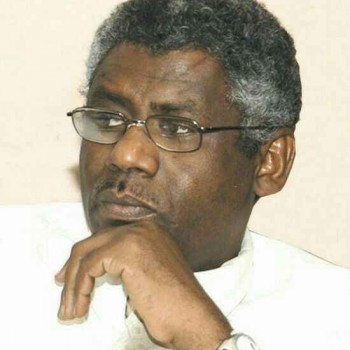Opinion
Political Solution First!

As I See It
Adil Al-Baz
1
The current political movements indicate attempts to establish new pathways that are being prepared away from the old tracks and initiatives that have dominated the scene since the outbreak of the war. These new paths represent a qualitative shift in the conflict, aiming to solve the dilemma of war in Sudan.
2
Four pathways can be identified as the focal points of these movements. The first is the UN-led efforts spearheaded by Volker Perthes. The second is a Turkish-led initiative, which aligns with calls for dialogue; in this context, the UAE and Egypt have also stepped in, with Egypt proposing an initiative announced by Finance Minister Jibril Ibrahim. Concurrently, Egypt is pushing for the convening of the second Sudanese forces’ conference, following its first edition last year. The fourth path is led by IGAD (Intergovernmental Authority on Development), where Sudan is expected to restore its membership and resume mediation efforts, albeit with many unresolved complexities.
3
These pathways do not directly address the war or demand an immediate ceasefire. Instead, they propose initiatives aimed at establishing political dialogue—whether between Sudanese factions, between Sudan and the UAE, or between the government and militias. The failure of the Geneva Conference, which was the latest international attempt to impose a solution to the Sudanese war, appears to have prompted the search for these new pathways.
4
The idea of resolving the war through a political solution is both old and new. It was proposed by three advisors within the American delegation during the early days of the Jeddah Conference, about three weeks after the outbreak of the war. Their perspective was that the issue was political, revolving around a power struggle, and that reaching a political formula acceptable to the conflicting parties would make stopping the war feasible and swift. They cited the Bosnia and Herzegovina War (1992-1995), which ended with the Dayton Agreement, where a political solution preceded and facilitated an official end to the war. However, for some reason, the idea of a “political solution first” was rejected, and negotiations instead focused on stopping the war through mutual commitments, which never materialized. Militias and their backers sought to undermine the agreement, mistakenly believing they could achieve victory and seize power in a matter of days.
5
Now, with Donald Trump’s potential return to power in the U.S., the idea of a “political solution first” has resurfaced with new approaches. There is no longer any discussion of the Jeddah platform among the pathways mentioned above. The current focus is on initiating political dialogue with the UAE and another with the militias. The danger of accepting a political dialogue first with the militias and their backers lies in nullifying everything achieved through the Jeddah platform, allowing militias to free themselves from any obligations with international witnesses.
6
Another risk is that such an approach fulfills a primary goal of the militias and their backers: reestablishing themselves at the heart of the political, military, and eventually economic arenas. Although this approach might seem tempting in the absence of alternative proposals, it appears that the attempt to launch a “political solution first” has prompted President Al-Burhan to declare his rejection of any path that restores militias to their pre-April 15 status. In his Independence Day speech two days ago, he affirmed: “Our path is clear—the path of the people. The situation cannot return to what it was before April 15, 2023, and we cannot accept the presence of these murderers, criminals, and their backers among the Sudanese people again.”
7
The most dangerous outcome of any current political dialogue between the government and militias would be the fragmentation of the currently cohesive internal front, which remains firmly opposed to any dialogue with the militias and their backers before implementing the Jeddah Declaration. Thus, it is better for the government to maintain its stance of refusing dialogue until the Jeddah Declaration requirements are met. Simultaneously, the political arena should remain free for interactions across various platforms, allowing political forces to engage in discussions without interference. The government can then benefit from the outcomes of these dialogues in the future without binding itself to any commitments or weakening its currently unified front.



